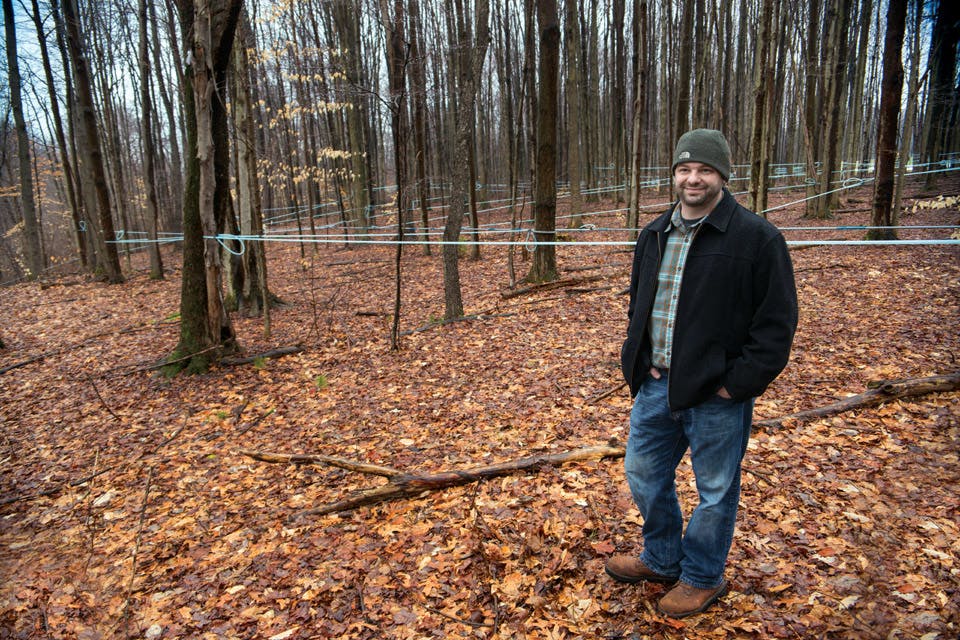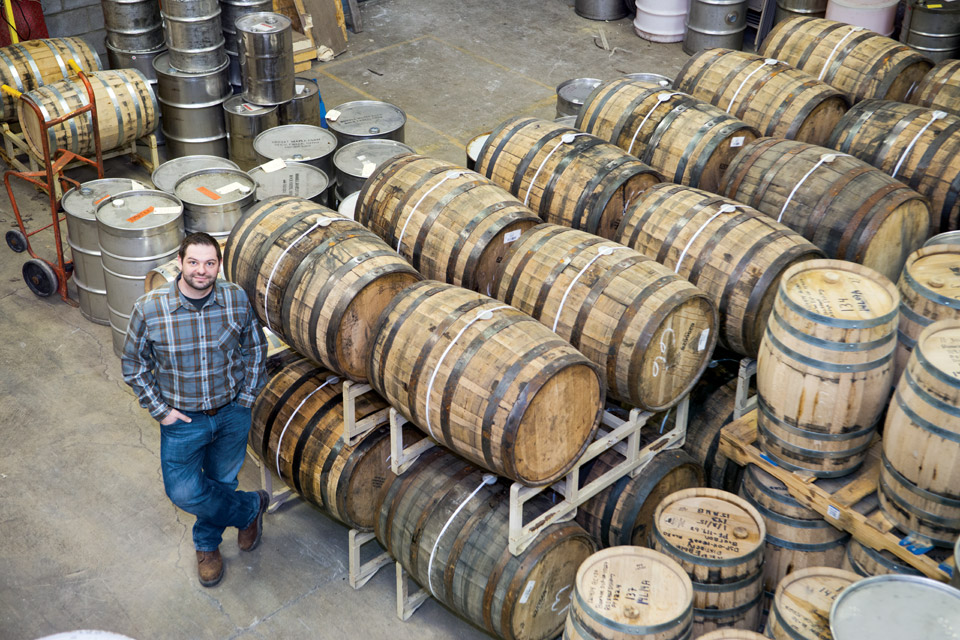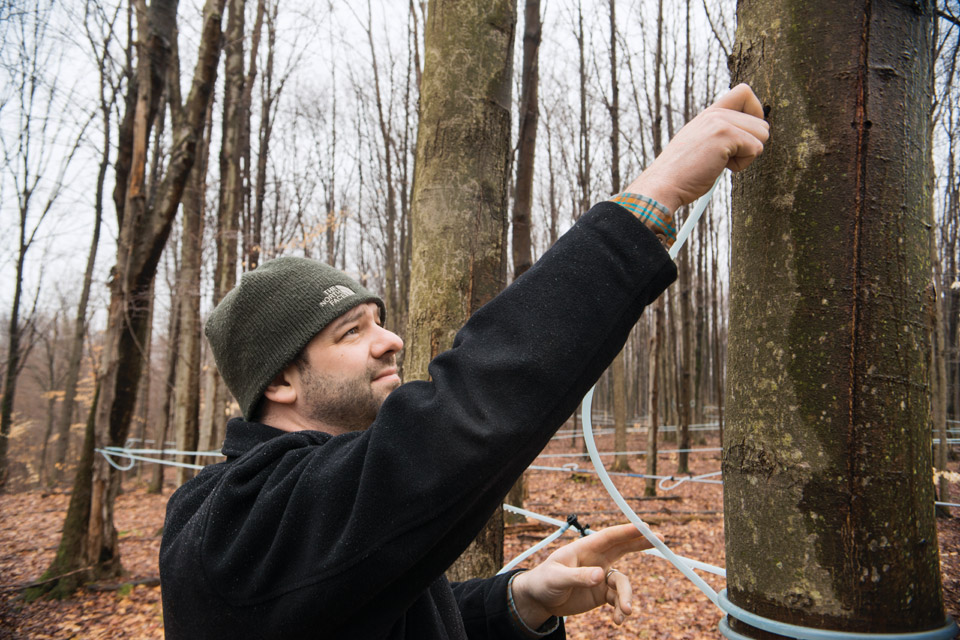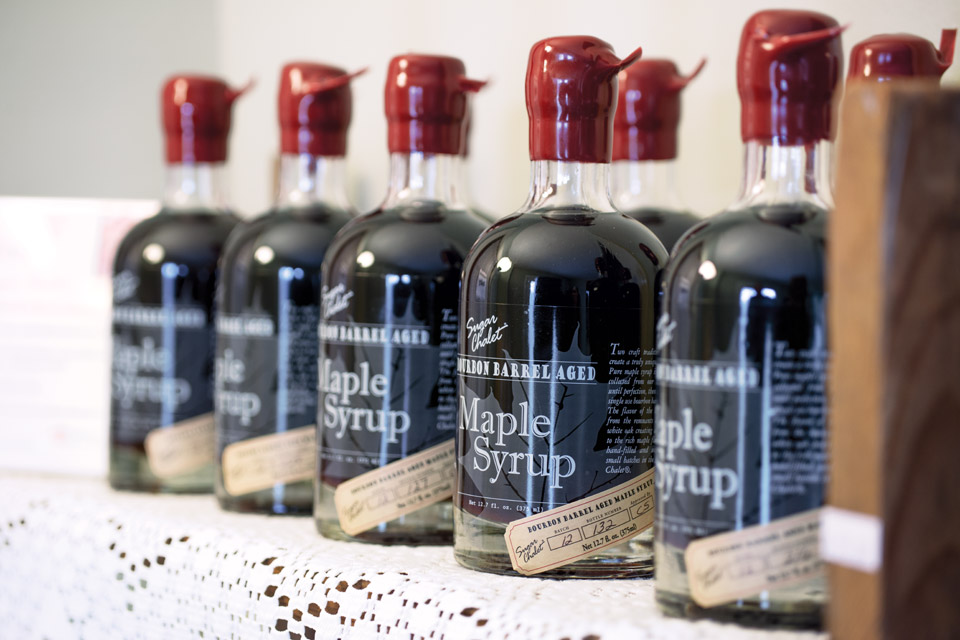Food + Drink
Meet Ohio Maple Farmer Nate Bissell
Syrup is in Nate Bissell’s blood. Now, he is working to make our state synonymous with the stuff.
Related Articles

Ohio Farmer Lee Jones Appears in a New TV Series
“The Chef's Garden” from Rachel Ray and International Content’s Free Food Studios is set to premiere on the A&E network Jan. 27. READ MORE >>
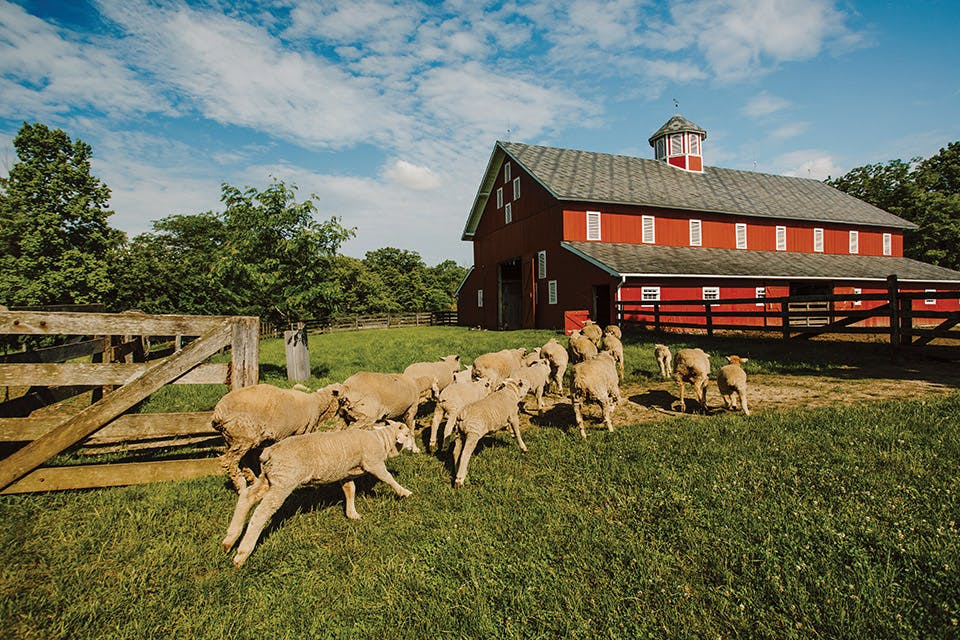
3 Unique Small Farms in Ohio
From a living-history destination to a legacy property to an operation owned by three first-generation woman farmers, these places celebrate and illustrate our connection to the land. READ MORE >>
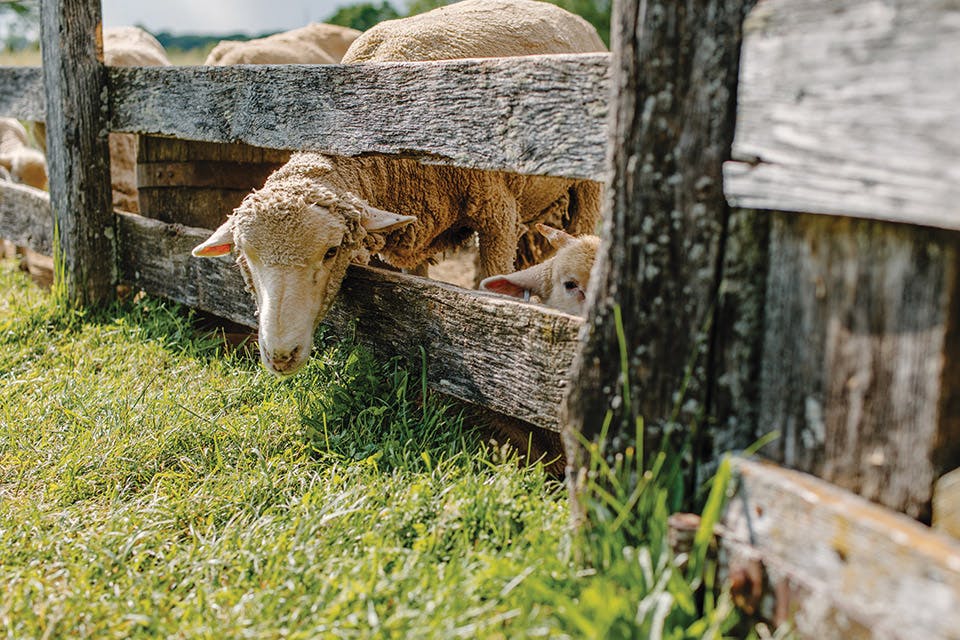
Slate Run Living Historical Farm, Canal Winchester
The 19th-century farmstead of Samuel Oman today teaches visitors what life was like during the heyday of Ohio farming. READ MORE >>


